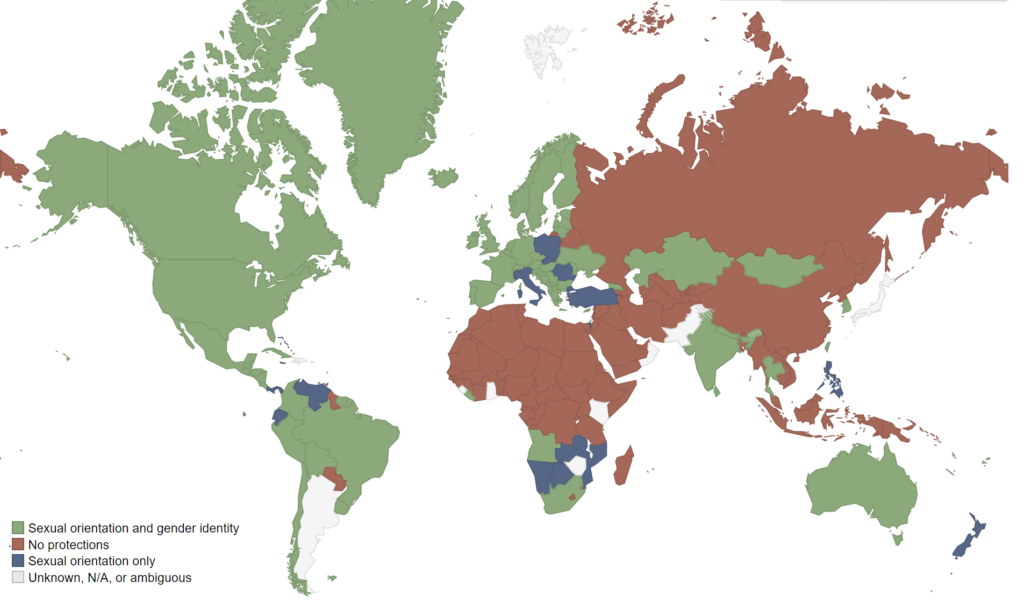In the global south, the lesbian, gay, bisexual, transgender, and queer (LGBTQ) community has continually been disproportionately impacted by poverty due to various factors. These include, but are not limited to discrimination in education, healthcare, the workplace, and financial institutions. This discrimination varies by location and the community’s opinion of LGBTQ+ people. However, it is common for many to have little to no education due to bullying and harassment faced in schools, impacting their ability to get a well-paying job. LGBTQ+ people who work for companies often face discrimination starting at the interview stage and going throughout their entire career. Furthermore, members of the community are not able to access financial assistance, like loans, due to their economic status, as well as prejudice held against them.

According to the map above, countries such as Northern Africa, the Middle East, the majority of Southeast Asia, Russia, and a few Eastern European countries offer no protections for LGBTQ+ employees. Countries such as Cambodia, Indonesia, Laos, and the Philippines are places where LGBTQ+ people face the most economic exclusion and therefore deal with extreme poverty. thirty-five percent of the Cambodian population lives in poverty, and this number includes a portion of the country’s LGBTQ+ population. People who identify as transgender and do not conform to gender norms often have the most trouble finding employment. Due to the struggle to find employment, a lack of education, and limited access to financial assistance, many LGBTQ+ Cambodians are forced to turn to sex work to provide for themselves and their families. Job opportunities for LGBTQ+ people are few and far between, not just in Cambodia, but all across Southeast Asia. These issues were even more exacerbated by the 2020 COVID-19 pandemic. Many LGBTQ+ employees were the first to be laid off in the area, and many are still struggling to find new jobs. Despite the growth in acceptance for the LGBTQ+ community and their human rights, the group still faces the struggle to survive in a world where they face discrimination daily. Organizations, like the four I will mention, are taking their knowledge about LGBTQ+ acceptance in the global south and partnering with other global south initiatives to help those who are most vulnerable. Through the use of workshops, events, and individual financial assistance, non-governmental organizations in Southeast Asia are providing resources to help the LGBTQ+ population.
